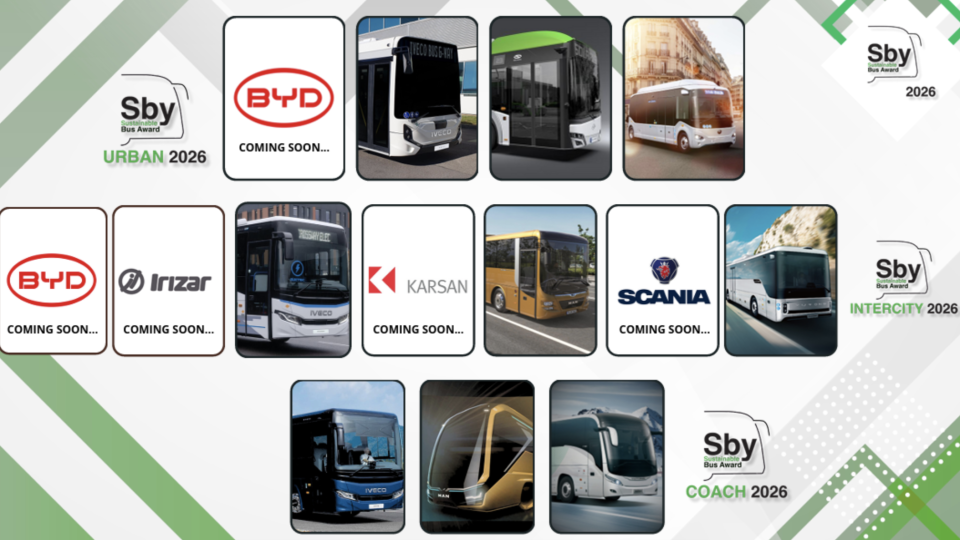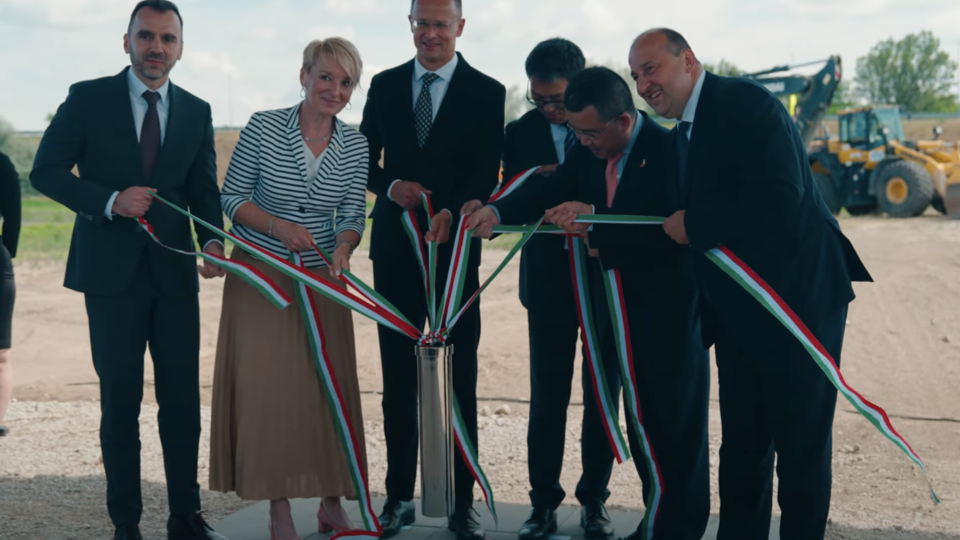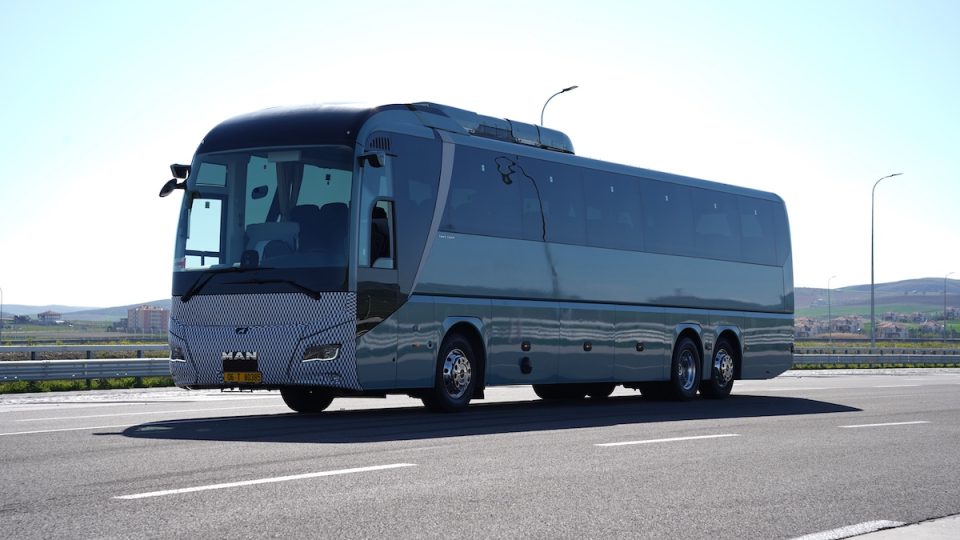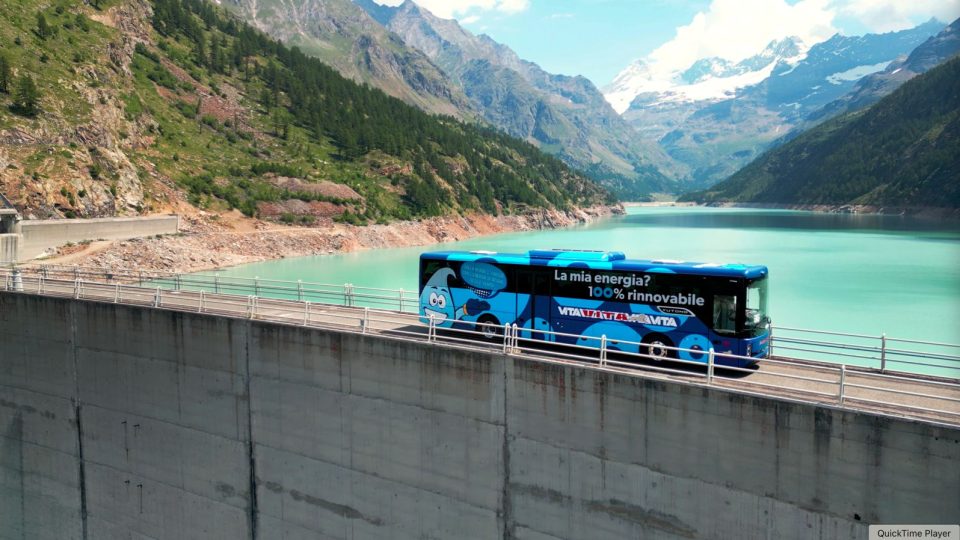Hydrogen buses in the spotlight at next Sustainable Bus Tour’s webinar (14th October)
The opportunities, challenges and outlooks related to fuel cell bus adoption will be put under the spotlight at the second and last webinar of the Sustainable Bus Tour 2021, which will be live broadcasted on 14th October at 3 p.m. CEST, entitled: ‘Hydrogen buses. Their time is... now?’.
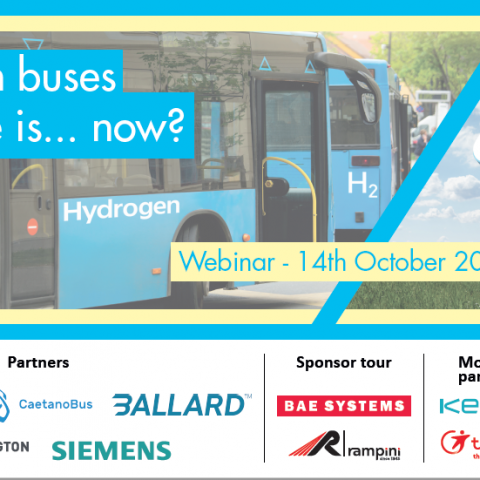
Today there are over 120 hydrogen buses operating in Europe, with plans to reach over 1,200 by 2025. So, which is the market potential for fuel cell bus deployment? How to deal with the infrastructural aspects? Is this technology going to find its place in the urban environment or mostly in intercity routes?
The opportunities, challenges and outlooks related to fuel cell bus adoption will be put under the spotlight at the second and last webinar of the Sustainable Bus Tour 2021, which will be live broadcasted on 14th October at 3 p.m. CEST, entitled: ‘Hydrogen buses. Their time is… now?’.
The initiative, promoted and organized by Sustainable Bus, leverages on the mobility partnership of Transdev and Keolis and on the involvement of a wide series of public transport and industry players. The first webinar, focusing on the topic of charging fleets of e-buses, was broadcasted on the 6th of May. It gathered 1,649 registrations and over 1,000 single viewers.
The event features the Clean Bus Europe Platform, an initiative under the European Commission’s Clean Bus Deployment Initiative that aims to support the deployment of clean bus technologies across Europe. The Platform brings together European cities, transport authorities and operators, together with relevant stakeholders like social dialogue partners, industry, financing and funding institutions, associations, etc. to boost and support the exchange of knowledge and expertise on clean bus deployment.
Which is the market potential for fuel cell buses? How to deal with the infrastructural aspects? Is this technology going to find its place in the urban environment or mostly in intercity routes?
the focus of sustainable bus tour’s webinar ‘hydrogen buses. their time is… now?’
A webinar on fuel cell buses in Europe
It’s decades that hydrogen technology is thought to be ‘ten years ahead’. Now things are changing. Building a hydrogen ecosystem is among the missions of the ‘Next generation EU’ plans drafted by the main European countries. German’s National Hydrogen Strategy provides for a 8 billion euros investment in 62 EU-backed hydrogen projects.
DOWNLOAD THE BROCHURE OF THE SUSTAINABLE BUS TOUR
Buses have been involved in fuel cell pilots ahead of time, before the battery-electric frenzy led to a massive – temporary – abandonment of H2. Which is currently being resumed with a refreshed perspective: some ten years ago, fuel cell technology was promoted as a solution for urban buses, while nowadays there is general agreement on FCVs as a future alternative to ICE for medium and long-range travel, from suburban routes to long distance transport. Anyhow, there is room for Class I fuel cell buses as well.
The Net Zero Scenario outlined by Bloomberg New Energy Finance in its Electric Vehicles Outlook 2021 reads: «Hydrogen fuel cell vehicles are 10% of medium and heavy commercial trucks on the road in 2050, some 16% of municipal buses, and less than 1% of the passenger vehicle fleet».
THE PROGRAM 👇
KEYNOTE PRESENTATIONS
- Efe Usanmaz, Manager Knowledge and Innovation Department at UITP
- Lionel Boillot, Project Manager at Fuel Cells and Hydrogen Joint Undertaking (FCH JU)
THE FUTURE OF HYDROGEN IN PUBLIC TRANSPORT
- Bart Kraaijvanger, Manager Zero Emission Programs at Transdev Netherlands
- Thomas Fontaine, Managing Director at Keolis Dijon
- Petra Piffer, General Manager at SASA Bolzano
- Wolfgang Reitmeier, Head of Depots, Workshops and Electric Mobility at VDV
THE FUEL CELL BUS INDUSTRY CHAIN
- David Yorke, Market Development Manager Europe at Ballard Power Systems
- Eugen Holl, Vice President Research and Development at Siemens CV
- Paulo Marques, Chief Technical Officer at CaetanoBus
- Radiša Nunić, Director of Public Affairs for Hydrogen at Worthington Industries
- Alexander Schabert, CCO and co-founder ViriCiti




